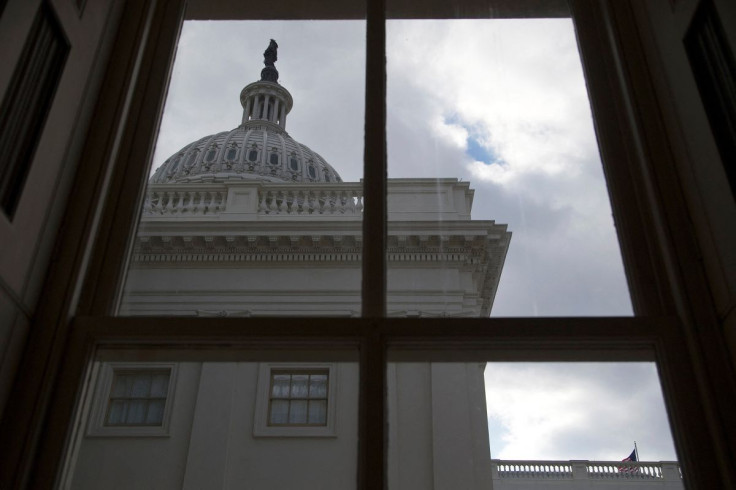Explainer-What Is The Filibuster And Could Democrats Suspend It For Abortion Rights?

President Joe Biden said on Thursday the U.S. Senate should consider scrapping a supermajority rule known as the filibuster to protect abortion and other privacy rights.
Critics say the filibuster, which requires 60 of the 100 senators to agree on most legislation, is an anti-democratic hurdle that prevents Washington from addressing pressing problems.
Supporters say it forces lawmakers to seek consensus, serves as an important check on the party in power and ensures that major laws that affect American life don't change radically with every election.
Once a rarity, the filibuster is now routinely invoked. Since Biden took office, Republicans have used it to block voting-rights bills and bring the United States perilously close to a crippling debt default.
Biden, who spent 36 years in the Senate, long supported the filibuster but has grown more open to changing it as Republicans have blocked several of his major initiatives.
Democrats could use their razor-thin Senate majority to eliminate the filibuster. But centrist Senators Joe Manchin and Kyrsten Sinema oppose this move, saying it will shatter the few bipartisan bonds that remain and give Republicans free rein if they win control of the Senate in the Nov. 8 midterm elections.
WHAT IS THE FILIBUSTER?
Unlike the House of Representatives, the Senate was set up to allow for unlimited debate. In the 19th century, lawmakers developed the filibuster -- a word derived from Dutch and Spanish terms for Caribbean pirates -- as a way to talk a bill to death.
Then-Democratic Senator Strom Thurmond set the record in 1957, when he spoke for 24 hours and 18 minutes to block a major civil rights bill. Democratic Senator Chris Murphy spoke for nearly 15 hours in 2016 to press for gun-control legislation and Republican Senator Ted Cruz spoke for more than 21 hours in 2013 to protest Democratic President Barack Obama's signature Affordable Care Act, popularly known as Obamacare. None of those efforts were successful.
Senators agreed in 1917 that a vote by a two-thirds majority could end debate on a given bill. That majority was reduced in 1975 to three-fifths of the Senate, currently 60 senators.
Under current rules, senators don't need to talk to gum up the works - they merely need to register their objection to initiate a filibuster.
Over the past 50 years, the number of filibusters has skyrocketed as Democrats and Republicans have become more politically polarized. From 1969 to 1970 there were six votes to overcome a filibuster, the nearest reliable proxy. In the 2019-2020 legislative session, there were 298 such votes.
WHY IS THIS A PROBLEM FOR DEMOCRATS?
Democrats control 50 seats in the Senate, which gives them a majority with Vice President Kamala Harris casting the tie-breaking 51st vote when needed. They can't overcome filibusters unless at least 10 Republicans vote with them.
Democrats were able to bypass the filibuster to pass Biden's $1.9 trillion COVID-19 stimulus plan using a special process known as reconciliation that only requires a simple majority for certain budget bills. But that process is subject to complex limitations and cannot be used regularly.
CAN THE FILIBUSTER BE CHANGED?
There have already been changes.
In 2013, Democrats removed the 60-vote threshold for voting on most nominees for administration jobs, apart from the Supreme Court, allowing them to advance on a simple majority vote.
In 2017, Republicans did the same thing for Supreme Court nominees, enabling them to install a 6-3 conservative majority on the nation's highest judicial body.
Both of those rule changes were made by simple majority votes.
Some Democrats have called for eliminating the filibuster entirely, but they lack the 50 votes needed to take that step.
Manchin and Synema, along with all 50 Republican senators, voted in January against setting aside the filibuster so voting rights reforms could pass the Senate.
It's not clear whether they would support doing so for abortion-related legislation.
© Copyright Thomson Reuters {{Year}}. All rights reserved.



















